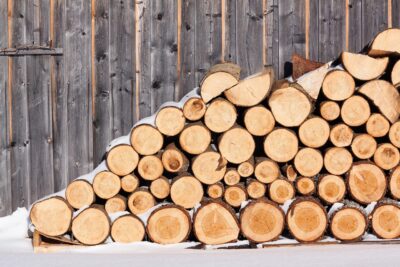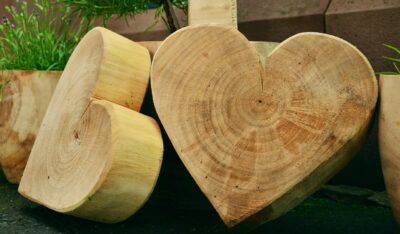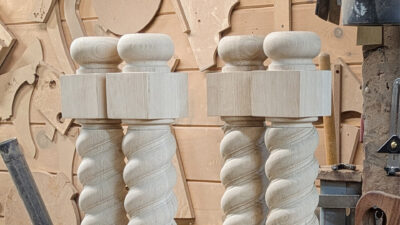Dutton, MI—Tyler Kamps still remembers his first trade show in China. It was in Guangzhou, a city of some 15 million souls. He was only 25 years old, and he and his manager Rob Kukowski of Kamps Hardwoods, located here, had come to learn about the market in hopes of increasing sales of Michigan Hardwood.
“I was amazed at how busy it was,” Kamps recalls. “The trade show was maybe 10 hours long and I don’t think we ever had a break on the first day of people visiting the booth. It was just overwhelming.”
That was in 2015. Kamps Hardwoods had been launched by Kukowski only five years earlier. The company already had a strong presence in the Chinese market but Kukowski decided to take the opportunity to visit various markets and customers in person.
Today, the company has sold to more than 25 different countries, observed Kamps, who along with Kukowski handles the company’s sales and purchasing. Based near Grand Rapids in western Michigan, the company kiln-dries and ships out about 9 million board feet of lumber a year. Kamps said the business functions as a concentration yard, as well as a distributor and a wholesaler.
“Starting with our Hard and Soft Maple and Red Oak, those species are exclusively from Michigan. The advantage that that offers in the Hard and Soft Maple is that you get a heavier percentage of sapwood.”
Tyler Kamps, sales and purchasing,
Kamps Hardwoods
The company’s major products are kiln-dried lumber in thicknesses of 4/4 to 12/4. Major species include Walnut, which makes up about 40 percent of the company’s product mix, then Hard and Soft Maple, Red and White Oak, Hickory, Cherry, Ash and Poplar.
The company is especially proud of the Michigan-grown lumber it offers. Overall, about 75 percent of the company’s product mix is harvested in that state.
“Starting with our Hard and Soft Maple and Red Oak, those species are exclusively from Michigan,” Kampsnoted. “The advantage that that offers in the Hard and Soft Maple is that you get a heavier percentage of sapwood.
“Our Hard Maple runs 85 percent or better No. 1 White. And in each of those species, the color of the sapwood is a consistent, bright white color. In the Red Oak – being all Michigan Red Oak – it’s a very consistent color, heavy wheat.” He also noted that all the species harvested in Michigan have very tight grain patterns, due to the long winters.
“Our annual Walnut volume, being around 3,500,000 board feet, forces us to go outside of Michigan to get the volume needed,” he stated. “But we are very conscious of staying in a tight sourcing area to assure that our Walnut color and quality is consistent. This consistency has helped us gain a loyal base of customers who were previously looking for a solution to inconsistent coloring from batch to batch.”
The company also offers live edge slabs, which are often used for dining tables, desktops, coffee tables, etc. And because the company owns and operates its own sawmill, it can produce lumber to custom specifications and works to develop programs with customers whose needs may be outside of the standard National Hardwood Lumber Association grades.
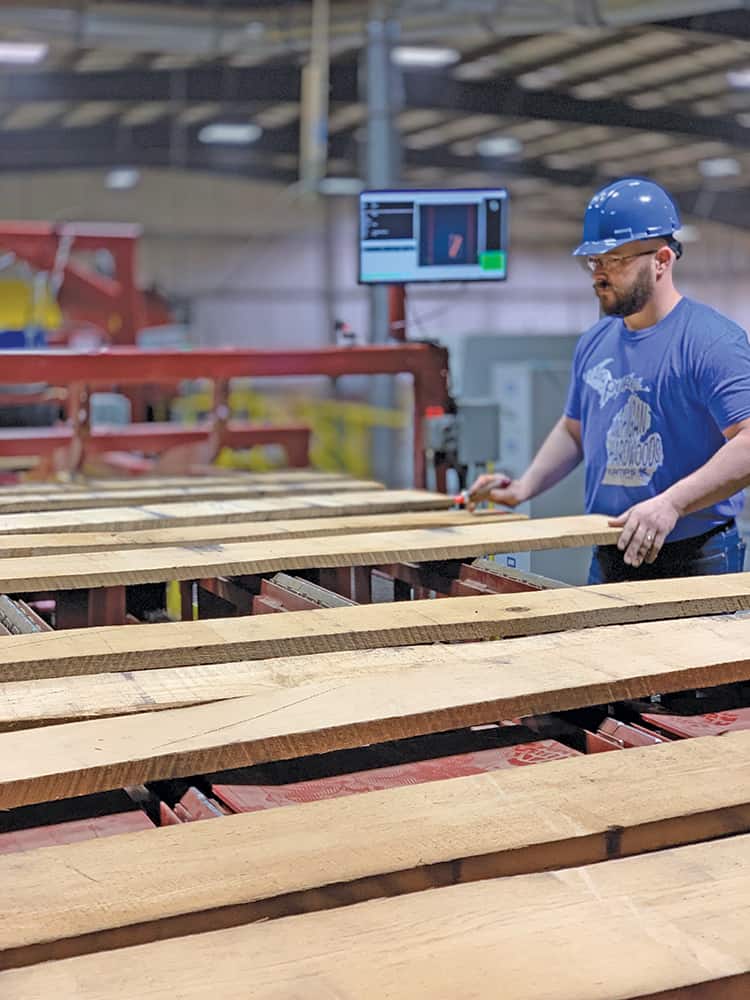

The company distributes lumber within Michigan and also sells to many distributors throughout the United States and overseas. It also works with small and large end users in the U.S. and abroad, including furniture, cabinet, trim, and flooring manufacturers and more.
“About 50 percent of our sales are exports,” stated Kamps, now 29. “A large percentage of our exports are to Vietnam, China, Japan and various other Asian countries. We also have a stable presence in Europe and are focused on developing that market further.”
The Michigan Department of Agriculture & Rural Development named the company the winner of the 2020 Michigan Agriculture Exporter of the Year Award. “Kamps Hardwoods was the best candidate based on their diversified export markets and steady export growth,” stated Jennifer Holton, director of communications for the Michigan Department of Agriculture & Rural Development.
Kamps said one factor that helped the company grow its export business was the state’s export assistance program. Kamps also said attending trade shows overseas helped boost the export business. How did the company find those shows? His company partnered with the American Hardwood Export Council, which offered the company exhibit space at the international trade shows.
Domestic sales are still roughly half of Kamps Hardwoods’ revenue. “Our sales base is widely represented across the U.S. and we are actively prospecting for distributors and end users in new markets,” Kamps stated. “The biggest thing that sets us apart is our customer service.”
Among the company’s key personnel are Stacey Wigger, who oversees export support and acts as controller, inventory manager Kelly Barents and production manager Cory VanOverloop. Kukowski is general manager.
The company’s history began with Tyler Kamps’ father, Paul Kamps. In 1989, the elder Kamps started a company called Michigan Pallet Recycling. Years later the company began purchasing sawmill operations primarily to supply the pallet shops. In 2004, Paul Kamps bought Buskirk Lumber Company in Freeport, MI, which the family still owns and operates today.
That was the company’s introduction to grade lumber, and for about six years, Paul Kamps sold grade lumber to various kiln operations throughout Michigan. In 2010 Paul Kamps purchased the Dutton, MI company that used to be known as Hamilton Lumber. That’s when Rob Kukowski came on board. Kukowski launched the company which is now Kamps Hardwoods.
Tyler Kamps joined the company in 2010, when he was only 19 years old and a college student. He was one of only four production employees at the time, and started with simple tasks such as piling lumber, but quickly grew into other roles.
Tyler Kamps said his father spends much of his time in the sawmills and that a key on-the-job mentor was Kukowski. Kamps said Kukowski had previously worked at another Michigan lumber company, Devereaux Sawmill Inc., and had gained extensive experience in the export business.
As for the company’s current properties, the associated Buskirk lumber mill in Freeport, MI sits on about 15 acres. Another sawmill in Fountain, MI had a fire in the summer of 2019 and is currently not operating. Meanwhile in Dutton, the company’s facilities include eight dry kilns, two Walnut steamers, and two air-dry sheds, plus five warehouses on a yard of 11 acres. Four of the dry kilns were manufactured by SII Dry Kilns, four by Brunner-Hildebrand.
In addition to the American Hardwood Export Council, the company is a member of the Indiana Hardwood Lumbermen’s Association, the National Hardwood Lumber Association, the Wood Products Manufacturers Association and the American Walnut Manufacturers Association. It’s also certified through the Forest Stewardship Council.
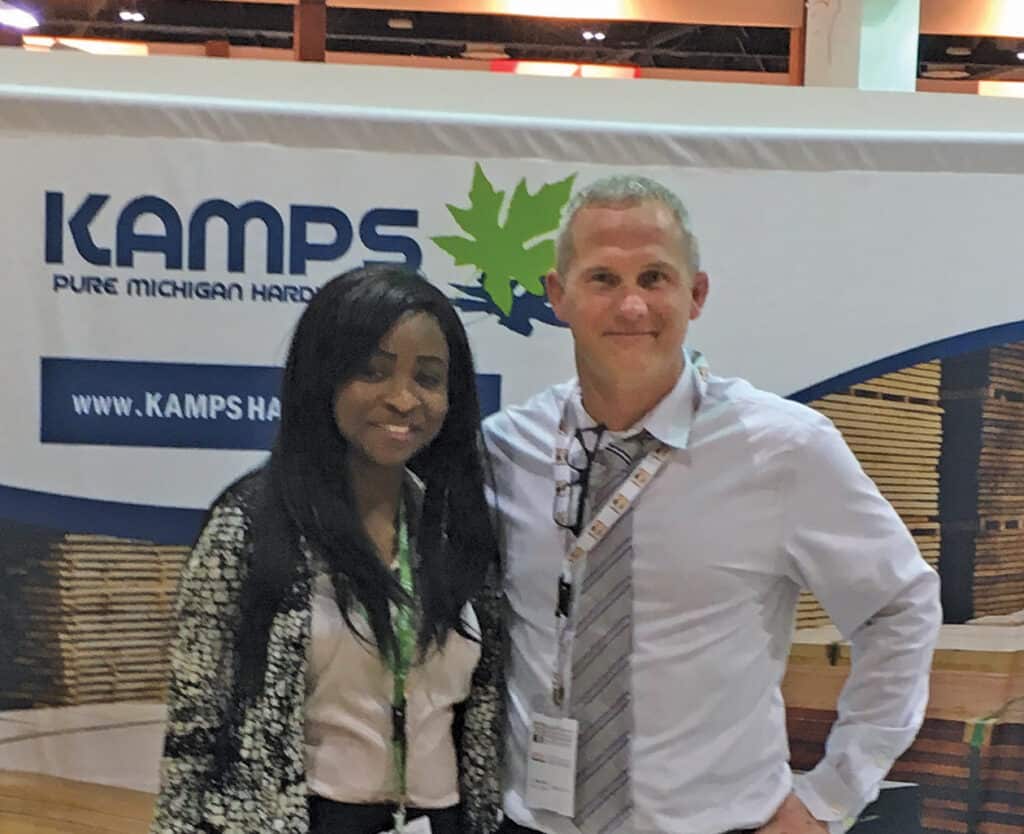
Like all companies, Kamps Hardwoods is making adjustments to the COVID-19 pandemic and the recession. “Owning our own sawmill, we always have lumber coming in to us,” Tyler Kamps observed. “Even in a pandemic we need to keep pressing onward, regardless of where pricing may be. Having good sales diversification has helped us tremendously and we are very grateful to have loyal customers helping us through these tough times.”
For more information, you can go to www.kampshardwoods.com.

